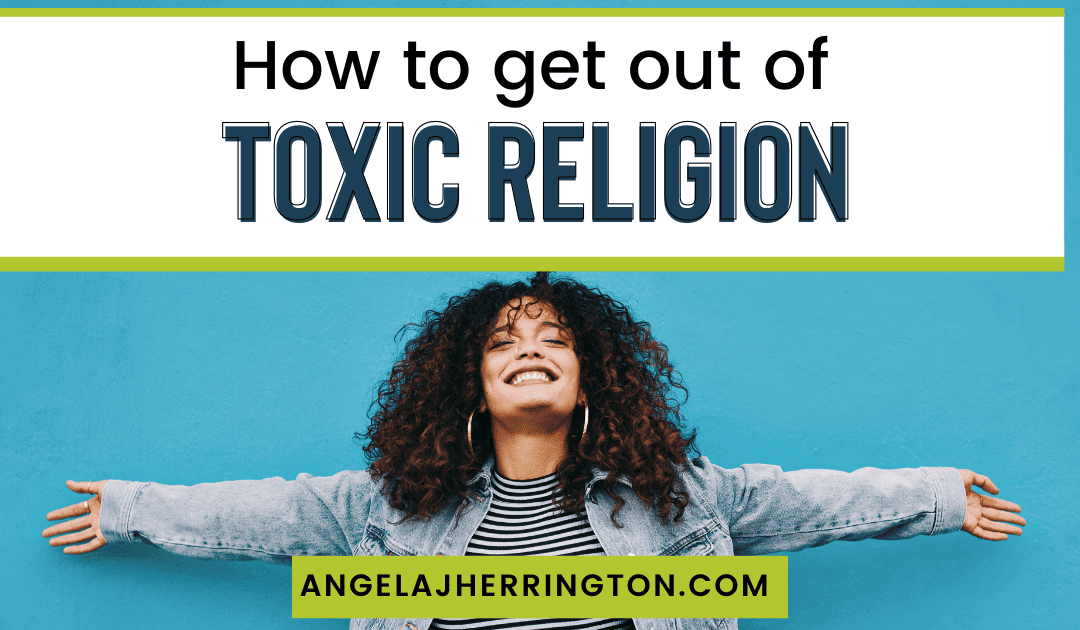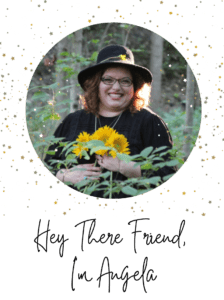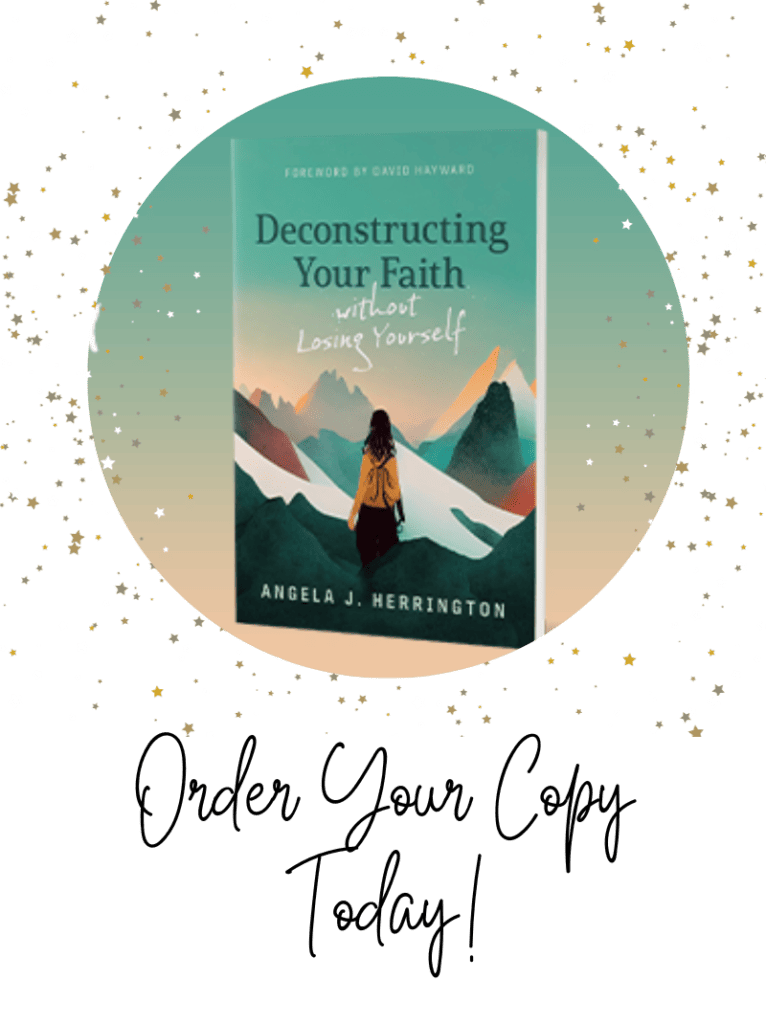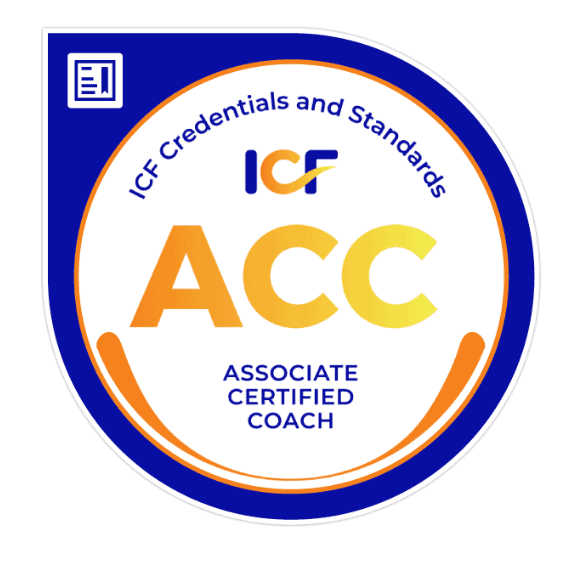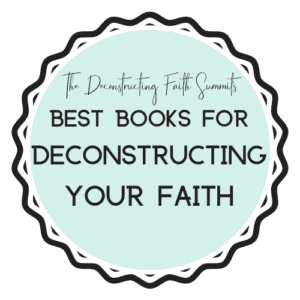You’re probably here because, like many who grew up in the church, you’ve realized what used to feel helpful and good had harmful theology woven into it.
Maybe you’ve been thinking about stepping back from your faith community for a while but aren’t sure if your community is unhealthy enough to justify leaving. Perhaps you’ve been deconstructing for a while but don’t know where to begin. Or maybe you aren’t really sure what life is like outside of toxic religion.
First, I want you to know you’re not alone. While hard data on how many people leave abusive religious communities are hard to find, it’s clear people are leaving organized religion. The number of ‘unaffiliated’ Christians jumped 7% in the last decade, and that data was collected pre-COVID.
Based on my conversations in the last few years, I anticipate a minimum 10-20% increase in the number of people leaving the church this decade.
Even though we see many people leaving high-control religious communities, fleeing Christian cults, and choosing to get out of legalistic religion, walking away from toxic religous culture is not easy. It can be devastatingly traumatic.
Every situation is different, but I’ve compiled this list of crucial steps to help you get out of toxic religion:
1. Acknowledge you are embedded in toxic religion.
If the group demands 100% obedience, punishes or ostracizes dissenters, or promotes harmful beliefs or practices, it’s a clear sign that you’re dealing with a toxic situation. Communities rooteed in toxic religion are so effective at trapping people because they weaponize the very human desire to belong. Members are welcome to question, doubt, and be curious within specific parameters that don’t threaten those in power, but crossing that line unleashes a torrent of criticism. Pay very close attention to how people who question or express opinions that don’t align with leadership are treated.
If you feel guilty, ashamed, or afraid of questioning authority or expressing doubts, that’s a major red flag that deserves your attention.
2. Give yourself space to process everything that comes up.
Breaking free from an oppressive religion can be overwhelming and emotionally draining. Allow yourself the time and freedom to reflect on your experiences, beliefs, community, and their impact on your life. It’s important to acknowledge the feelings that come up. You’ll probably feel anger, sadness, confusion, or a good mix of various feelings. Give yourself permission to question and reevaluate your beliefs without self-judgment. Embrace self-care practices, such as therapy, meditation, or journaling, to aid processing and healing.
Remember, healing is a unique journey, and by giving yourself space, you can find the strength and clarity to create a life free from the chains of an abusive religion.
3. Choose what part of your story you want to tell.
You don’t have to explain yourself or share everything with those still deep in the church. Getting out of a toxic religion is no easy feat. You may face pressure from family, friends, or community members to stay put and feel like you’re risking your entire support system by leaving. If it helps, know that hundreds of thousands are deconstructing their faith and asking these same questions.
You aren’t a heretic; you’re a human doing their best, so allow yourself space to heal and learn to trust yourself again.
4. Reach out for trained help.
You shouldn’t have to do this alone; the emotional fallout of coming to this decision and following through on it can be rough. If you have any, seek out trusted friends, family members, or professionals who can offer you support and guidance.
Partnering with a therapist who understands religious trauma and toxic religious culture or a deconstruction coach (Hi, I’m one!), hold space while you sort out what feels true and what is harmful. There’s a good chance your body is holding a lot of trauma, so find people who can support you through gentle movement (like yoga), massage, energy work, meditation, and connecting with nature.
The bottom line is that you deserve professional, trauma-informed support as you make the messy decisions needed to get out of toxic religion.
5. Create a personal support network.
Not everyone will support you; some may actively try to prevent you from leaving or shame you for asking questions. Look outside the church (or find an inclusive space that supports you. In this post-pandemic world, many online churches and groups explore faith deconstruction. They can provide much-needed support until you can create a network of local people supporting your decision to leave the toxic community. Surround yourself with compassionate, understanding individuals who can guide you through this transformative period. A good rule of thumb for trusting people is if they remind you to listen to your nudge over the dogma of what a ‘good Christian’ would do.
Remember, people must earn the right to be in your inner circle. Not everyone is trustworthy enough to hear your story.
6. Educate yourself about what you’re up against.
You’ll face some severe backlash and challenges while you get out of toxic religion. I’m here to tell you the majority of that backlash has nothing to do with you, even though it hurt deeply. The hate and anger is designed to protect the unhealthy system that toxic religious culture props up. Learn how harmful religious groups use tactics to keep their members under control. I wrote this blog about 30 Signs Your Church is Immersed in Toxic Religion that might make it helpful to see the red flags.
The more you know, the better equipped you’ll be to make informed decisions without shaming yourself.
7. Take time to make a plan.
Leaving your toxic religious community can be complex, so it’s good to take time and make a few plans. If you are physically safe, choose when to step back and how to take the first step. If you’re not physically safe, create a plan outlining how you’ll leave the community, where you’ll go, and what steps you’ll take to ensure your safety. Depending on the enmeshment when you leave, this may require changing your name, move locations, or phone number. A plan can also be a way of responding when people invite you to church or what you want to say when someone asks about your belief.
Make it your goal to plan, but not to obsess over every detail or get stuck in perfectionism.
8. Leave on your terms.
You don’t owe the community you’re leaving anything. People leave faith communities in various ways; some slowly stop coming, others write letters, texts, or emails to people they care about within the toxic religious community, and some have face-to-face conversations. Some share on Facebook, while others don’t tell anyone.
The key to your healing is to decide what is right for you in this moment and stick to it.
9. You get to choose when and how you leave toxic religion.
In some churches, you need to have a rock-solid reason for anything you believe, so you may feel frozen because you can’t ‘know for sure’ this is the next right step. When you feel the pull, trust your gut, and give yourself permission to take the next step.
Don’t let other people’s opinions pressure you to leave before you’re ready or stay longer than you want.
10. Find community outside of toxic religious circles.
Leaving behind a community that once felt like home can leave a significant void in your life. It’s essential to seek out new connections and support systems that align with your evolving beliefs and values. Look for inclusive spaces where you can connect with like-minded individuals who respect your journey. (My free Facebook community is a great place to start-Get more info here.) This could be through joining support groups, attending secular gatherings, or participating in hobbies and activities that bring you joy and fulfillment. Remember, rebuilding your community may take time, but it’s worth investing in relationships that nurture your growth and well-being.
Getting out of toxic religious culture isn’t easy, but it’s worth it. Remember, you deserve to live free from guilt, shame, and fear. So take the steps you need to break free and start living the life you want.
Breaking free from toxic religious culture can be brutal, but it will be worth it because you deserve to be free!
Hungry for more? Here are a few popular faith deconstruction-related posts you’ll find helpful:
What Does it Mean to Deconstruct Your Faith?
Sometimes You Have to Leave the Church to Find God
Is Deconstructing Your Faith Biblical?
8 Reasons Why Christians Should be 2SLGBTQIA+ Allies
Deconstructing While Parenting
How to Get Out of Toxic Religion
The Best Faith Deconstruction Conferences & Online Summits


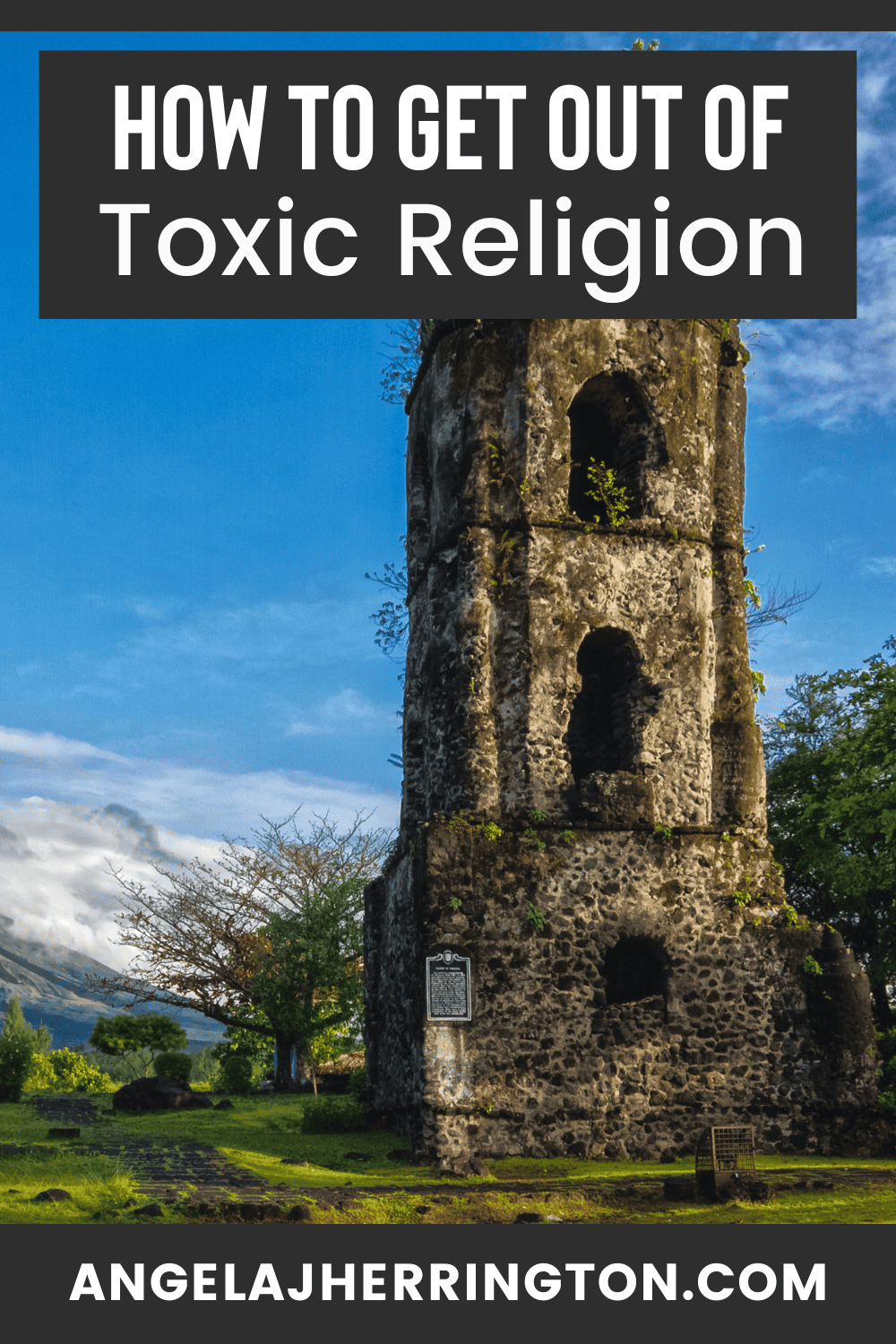

Angela is a Faith Deconstruction Coach and host of The Deconstructing Faith Summit who helps people break free from toxic religious culture & empowers them to recover from #churchhurt. She has led online ministries for a decade, enjoys working with clients 1:1, in groups, and is a dynamic conference speaker. She’s a Lark’s Song Certified Life Coach who reaches thousands of people in 40+ countries each month on Facebook, IG, Twitter, Pinterest, and her blog.
She’s a firstborn, Enneagram 8, Gen Xer who loves to question everything. She holds a BA from Indiana Wesleyan and a Masters in Leadership from Wesley Seminary. Her graduate research project focused on leadership development and opportunities for Gen X women in the US church.
Angela and her unique online ministry are featured in Lyz Lenz’s 2019 book God Land: Story of Faith, Loss, and Renewal in Middle America. She has published articles in Hope for Women and HOPE is Now magazines. She has been featured in The New Republic, Publisher’s Today, and Religion News Service.
Her first book, Deconstructing Your Faith Without Losing Yourself, Will be published by Eerdmans in February 2023.
Angela is also a wife, mom to 5, and a proud resident of Marion, Indiana with her family when they’re not traveling the US in their RV.

